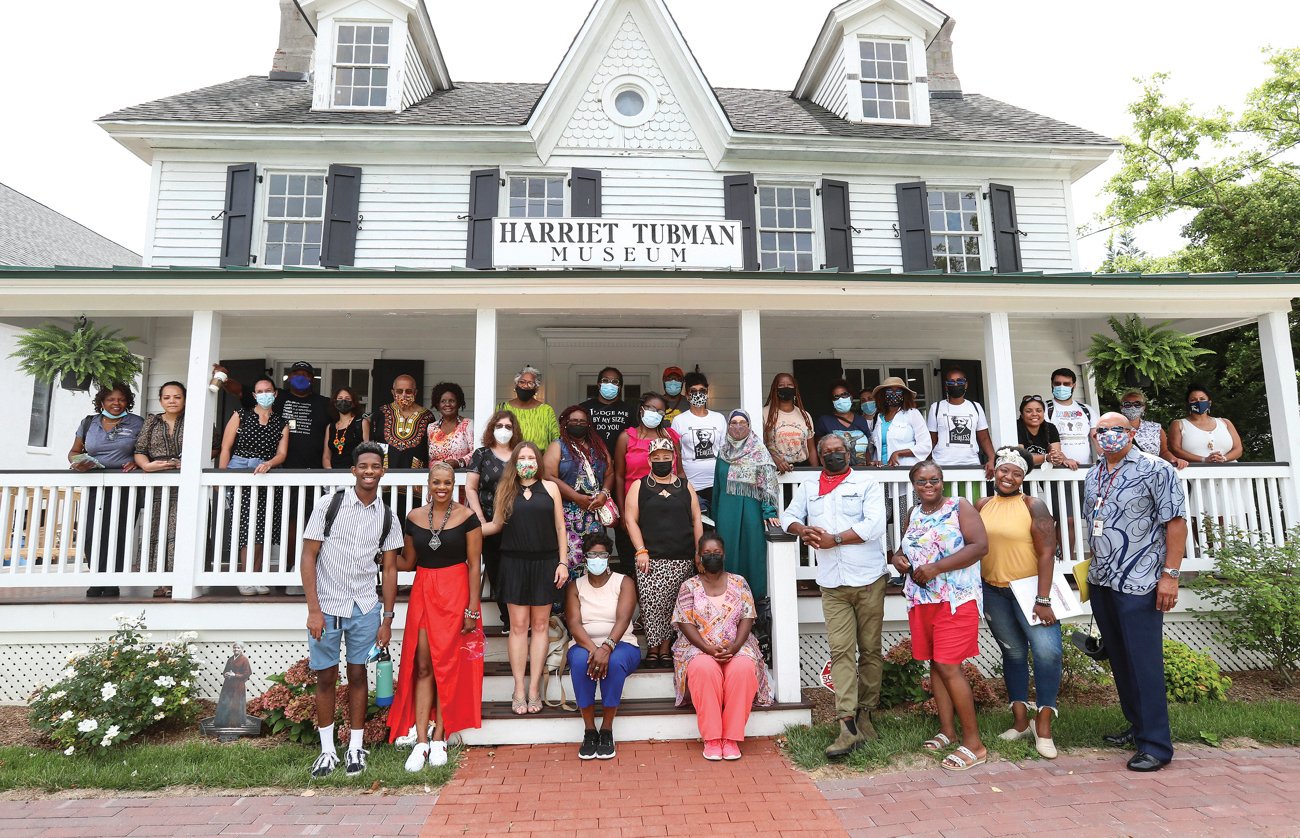Harriet Tubman Museum
Website: harriettubmanmuseum.org
Address: 623 Lafayette Street, Cape May
About The Museum: For years, rumors swirled in Cape May that Harriet Tubman once worked as a cook on the island, stowing away money for her work as a conductor on the Underground Railroad. But longtime visitors knew to take such stories with a grain of sand.
Then a funny thing happened. Research confirmed that not only did Tubman spend time in Cape May, but the town was an epicenter of the abolitionist movement in the northeast. To honor this legacy, the community banded together to build the Harriet Tubman Museum. It opened virtually in June 2020, and operationally on Juneteenth 2021. In its short tenure, the museum has established a national reputation as a key destination to learn about Harriet Tubman and the Underground Railroad. Smithsonian Magazine cited it as one of the “10 Most Anticipated Museums” in the world for 2020, and USA Today’s Readers’ Choice Awards listed it among the “10 Best New Museums” of 2021.
With a bounty on her head, Tubman had good reason to keep her movements secret, but we know that she led some 70 people out of slavery and was responsible for the liberation of hundreds of others. And she spent time in the early 1850s working to raise money for her operations in Cape May. In the fall of 1852, she made a clandestine trip to the Eastern Shore, where she led nine people out of slavery.
A 1909 article from The New York Sun claims Tubman engineered a settlement for formally enslaved people in Cape May, and she did it the same year this rescue happened, suggesting this group — and potentially others — established new lives in town. Therefore, it was an important stop on the Underground Railroad.
The museum was created in a building owned by the predominantly African American Macedonia Baptist Church. Visitors to the museum will engage with the work of African American artists and artifacts from the late Reverend Robert Davis collection, who was the longtime minister at the Macedonia.
Emily Dempsey, the African American owner of a local antique shop who represents a family whose presence in Cape May spans at least six generations, has also donated an early-edition copy of William Still’s book, The Underground Rail Road, in which the author documented the hardships relayed to him during interviews with escaped freedom seekers, some recounting their journeys through Cape May.
“It’s like a light has been switched on in Cape May,” Dempsey said. “I know my grandmother had stories of Harriet Tubman, but you don’t talk too openly about a person who had a bounty on her head. We thought this history was lost. Now, we’re learning about our ancestors.”


